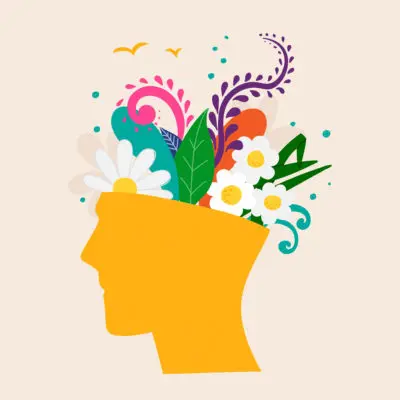Medical Editor: Dr. David Cox, PhD, ABPP
Ketamine is a landmark drug that gained fame on the battlefield, in dance clubs as a party drug, and more recently, as a novel treatment for depression. Like many psychedelics, its reputation as a medicine has been out-shadowed by propaganda from the War on Drugs. Focusing on misconceptions from anti-drug lobbying can prevent the real dangers of the substance’s potential for harm and addiction from being discussed. If one is considering ketamine for therapeutic purposes, there may be questions regarding its potential for abuse. Keep reading to learn what ketamine is, how people can abuse it, and if addiction is a risk in medical settings.
What Is Ketamine?
Ketamine, like most psychedelics, has a history wrought with myths, rumors, and historical medical advances. Initially discovered in 1956, ketamine was approved in 1970 as an anesthetic agent derived from phencyclidine. Ketamine made a name for itself on battlefields during the Vietnam War, where it was used as an anesthetic and pain-reliever on wounded soldiers. Ketamine is a safe option in trauma settings because it maintains hemodynamic stability or stable blood flow, and is still used in some surgical and hospital settings today. It’s even listed on the World Health Organization Model List of Essential Medicines, which names medications considered most effective and safe while meeting a health system’s most essential needs.
Ketamine is also used recreationally as a dissociative, which is where most of the fear surrounding ketamine addiction stems from. More recently, ketamine became a landmark medicine for mood and anxiety disorders. In March of 2019, ketamine became the first FDA-approved psychedelic medicine, in the form of the nasal spray Spravato (esketamine), for treatment-resistant depression. The generic form of ketamine, racemic ketamine, is also used off-label primarily through infusions to treat depression, as well as PTSD, suicidal ideation, anxiety, and more.
Is Ketamine Addictive?
It can be challenging to separate the real safety guidelines from the hysteria surrounding the War on Drugs. Still, some people take ketamine at subanesthetic doses recreationally. While it is rarely fatal, ketamine can be abused, just like alcohol, cannabis, or any other substance which provides euphoria. There is research on daily recreational users, which shows that people can be addicted to ketamine. The same study suggests that chronic use can cause cortical atrophy in the frontal, parietal or occipital cortices.The study included 21 subjects that used ketamine at least two or three times per week; most used it daily and one subject was taking ketamine together with amphetamine and ecstasy.
There are risks from the overuse of ketamine, and the adverse reactions tend to be dose-dependent. These include urinary tract problems, gastrointestinal symptoms, and hepatic injury, although research shows that these adverse effects may be reversible with abstinence. Some research shows that recreational ketamine abuse can lead to disrupted learning and memory processing. Death from ketamine is rare.
One must note that recreational ketamine abuse, which is associated with addiction, is drastically different from therapeutic ketamine. Like any drug obtained illicitly, recreational ketamine also runs the risk of being cut or adulterated with more dangerous substances. The route of administration is also different. Most illicit ketamine is either insufflated or injected, with the individual often not knowing the correct dosage or possible adulteration.
Whereas there is little monitoring of recreational use, therapeutic ketamine is administered under a medical professional’s supervision. Recreational use leaves obtaining the ketamine, dosing, and frequency of use in the hands of a person most likely unqualified to administer it properly. Good ketamine clinics also conduct a thorough screening process to filter out anyone who may not react well to properly access the risk and benefit. When used this way, one can overuse ketamine in a manner that therapeutic applications strive to prevent. A reliable doctor and treatment center
carefully dose and monitor the patient to prevent dependence or adverse effects. One paper notes that the same neurocircuitry mediating the antidepressant effects of ketamine could also contribute to its abuse potential and clarifies that more research is needed before any definitive claims are made.
Ketamine and Harm Reduction
Ketamine could be addictive for some. However, it’s worth noting that other commonly prescribed drugs, like benzodiazepines, are far more addictive. These treat conditions that ketamine also shows promise for, such as anxiety. From a harm reduction perspective, ketamine may bean excellent choice for patients fighting anxiety and mood disorders. Ketamine is also used in operating and emergency room settings as a safer option for patients recovering from opioid use disorder. Not only is ketamine a safer option for depression and pain relief from a harm reduction standpoint, but it’s also being studied as a treatment for substance use disorders.
A 2018 study suggests that ketamine has been shown to effectively prolong abstinence from alcohol and heroin in people with substance use disorders (alcoholics and heroin-dependent individuals). It also reduced craving for and self-administration of cocaine in non-treatment-seeking cocaine users. Case studies also show that ketamine could ease symptoms of opioid withdrawal. The research suggests that ketamine can treat substance use disorders by enhancing neuroplasticity and neurogenesis, disrupting relevant functional neural networks, treating depressive symptoms, blocking the reconsolidation of drug-related memories, provoking mystical experiences, and enhancing psychological therapy efficacy. However, more research is needed before doctors can recommend widespread use.
Conclusion and Final Thoughts
Like any substance with euphoric side effects, ketamine can be abused and potentially become addictive. However, comparing its side effect profile to other drugs which treat the same conditions, such as benzodiazepines or opioids, shows that ketamine is a responsible alternative from a harm reduction standpoint. While more research is needed, the benefits of ketamine therapy may vastly outweigh the risks. However, to minimize these risks and maximize the benefits, one should only use ketamine under a trusted doctor’s supervision.







